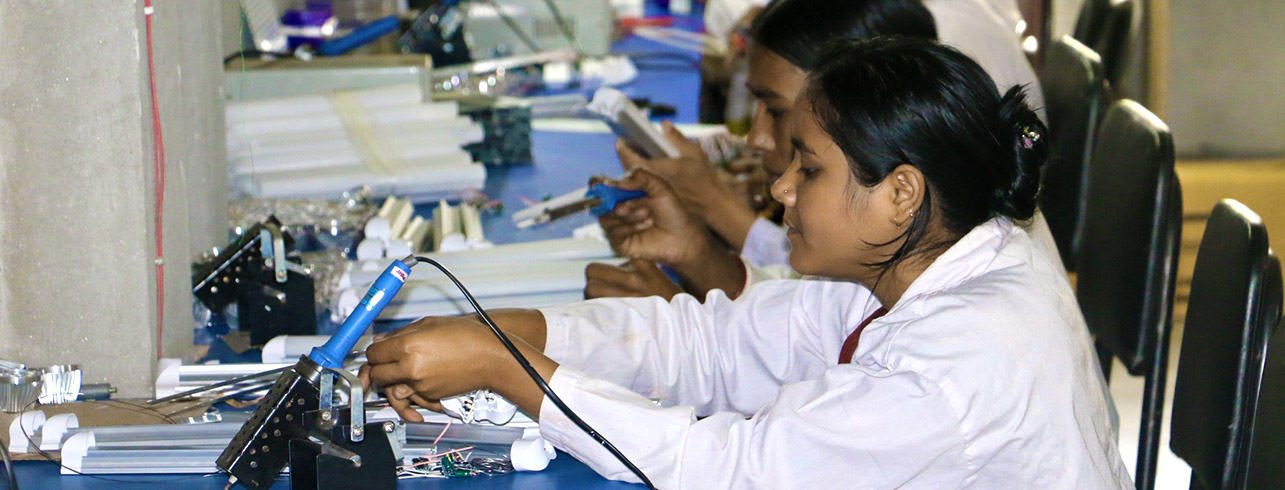Gaibandha, Mymensingh, Naogaon, Rangamati, Tangail, Thakurgaon


Social Business Learning and Innovation Fund (SBLIF)
SBLIF has been created to encourage innovative enterprises to undertake social business. SBLIF intends to support social business models through learning by doing approach on a pilot basis. Successful and tested models can gradually be scaled up and replicated. The proposed modes of funding these social businesses include: project financing, equity financing, working capital financing, joint‐venture or 100% Grameen Telecom Trust (GTT) ownership etc.
WHAT INNOVATION MEANS TO GTT?
GTT considers those enterprises as innovative which take creative steps in benefiting its clients, with a social objective of broadening opportunities, for instance, through ensuring wage employment or increased income or offering affordable products and services.
Criteria for Social Business Project under SBLIF

Creation of market linkage to ensure impoverished producers
/ geographically and economically isolated communities get the “best price” for their
products
Revival or promotion of a potential industry/sector/value chain that will
lead to employment generation through skill enhancement, design improvement, technological
up‐gradation, new market access etc


Promotion of national heritage (e.g. tourism, sports, events) and
traditional products (e.g. food items, pottery, handloom products) through greater public
awareness, new market opportunities (e.g. corporate gift/event items).
Promotion and support of grassroot entrepreneurship (e.g. rural
marketing of affordable products)


Addressing social issues (e.g. education, health, rights and empowerment),
green energy (e.g. solar energy, bio‐gas energy) and business development services through
access to training, market linkage, value chain analysis and value added financial services
(e.g. micro‐insurance covering health, life and assets).